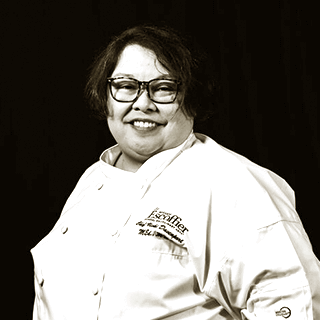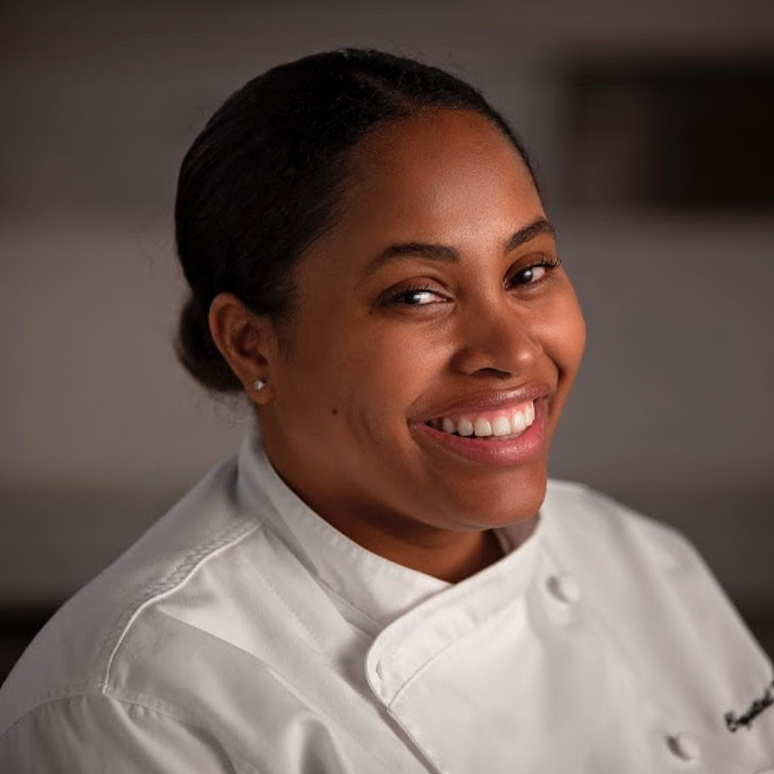Listen to This Article:
What do you see when you picture yourself in a restaurant management position—are you working with a chef to refine your menu based on the seasonal availability of ingredients? Negotiating with food and liquor distributors to secure high-quality product? Developing a robust business plan for the future of the restaurant?
Or perhaps you can see yourself doing all of the above, while leading your staff in delivering a great experience for your guests.
If you’re a natural leader and have an interest in making decisions that affect the front of the house, back of the house, and the long-term success of a restaurant, you may be cut out to serve as a food and beverage director.
Let’s take a closer look at the duties associated with the position, some key steps you may take toward landing this job, and some of the qualities that can make for a great food and beverage director.
What Is a Food and Beverage Director?
A food and beverage director is a senior-level management position. Individuals in this position are responsible for making big-picture decisions about their business’ food service operations. Not all restaurants will employ a food and beverage director; they’re more likely to be found at businesses with large or complex operations—think restaurants with multiple locations, hotel chains, fine dining establishments, or large event venues.

Food and beverage directors manage food service operations at hotels, fine dining restaurants, and other businesses.
Responsibilities of a Food and Beverage Director
A food and beverage director’s responsibilities are diverse. They may include building and maintaining relationships with distributors, designing the menu and wine list, tracking and managing food and labor costs, setting and enforcing training practices, planning events and promotions, and coordinating with other managers to ensure the whole operation runs smoothly.
If you’re exploring restaurant management jobs, you might have noticed that a number of these responsibilities overlap with the duties of other positions, such as managers or executive chefs. So, what’s the difference between a food and beverage director and someone in a similar hospitality management position?
It all comes down to seniority. A food and beverage director is at the top of the pyramid for a business’ food service operations. All other positions are below them—executive chefs, restaurant managers, catering managers, room service managers…They work alongside other directors, such as a director of marketing or a director of sales, and, depending on their organization’s structure, are below only the owners, president, CEO, and/or board of directors.
While they will likely work hand-in-hand with their executive chef and other managers to perform many of their job duties, their responsibilities are much more oriented around the long-term direction and stability of the business.
That said, as the highest-ranking individual in their department, they are typically accountable for the performance of everyone downstream from them. This means that, in addition to managing the long-term outlook of the business, they should also have a nuanced understanding of their operations so that they are able to recognize and understand issues and come up with the right solutions.

Food and beverage directors are usually accountable for the performance of everyone under them.
For example, imagine a restaurant is missing its cost target for by-the-glass wine service. Is it because the bartenders haven’t been trained properly, the wine stoppers are inadequate, there isn’t enough demand for the wines on the menu, or some other reason? A good food and beverage director should be able to understand their operation well enough that they can accurately diagnose the root cause of the issue and come up with an effective way to resolve it.
Key Steps to Becoming a Food and Beverage Director
As with many careers in the food industry, there is no one path to becoming a food and beverage director. However, as this is a high-level position, there are a number of qualifications—such as formal education and managerial experience—that an employer is likely to expect from you. Here are a few key steps that may help you land your dream food and beverage director job.
1. Acquire Frontline Food Industry Experience
As a food and beverage director, you’ll be making decisions that affect every other food service employee at your company. With such far-reaching responsibilities, it can be valuable to start your path toward this position by gaining hands-on, ground-level food industry experience.
This can be beneficial in a number of ways. Developing an intimate knowledge of how food service works can help you develop better long-term strategies as a director, and can also help you identify issues and opportunities for improvement more accurately. It can also give you more empathy for your employees, because you know what it’s like to be in their shoes.
This isn’t just a hypothetical benefit. Studies have shown that a positive relationship with a manager is linked with increased employee motivation and performance. So gaining this hands-on experience can not only help you succeed as a food and beverage director—it can also help your employees succeed in their jobs, too.
This experience can be obtained either in the front or back of the house, and in any position—while it can be helpful to work in a variety of roles, there’s typically no specific requirement here. The important thing is to consider getting this experience under your belt, for the benefits it may deliver later.
2. Seek Formal Hospitality Training and Education
While building up frontline experience can help you establish fundamental perspective for your food service career, you may wish to consider seeking formal training programs, or education from a culinary school as well. This can be particularly important when pursuing food and beverage director jobs, as the position can involve advanced business principles—skills that may be more difficult to develop purely by working in a restaurant.
Getting an education that focuses on hospitality and restaurant operations can be a great way to acquire the specific skills and knowledge you’re likely to need as a food and beverage director. With a course load that may include operations training, menu design, foodservice math and accounting, and global cuisine, in addition to culinary instruction and a hands-on externship, you can have the opportunity to develop a well-rounded skill set that can prepare you to thrive as a food and beverage director.
Plus, obtaining a degree or diploma from culinary school may help you stand out to prospective employers as a dedicated, ambitious candidate.

A culinary school education can help you acquire the skills necessary to become a food and beverage director.
3. Learn the Ropes in Mid-Level Management Positions
Though it’s not inconceivable that you may be able to land a food and beverage director job straight out of culinary school, the reality is that there are comparatively few of these jobs available. Not every food service business employs a food and beverage director. At the same time, most businesses employ some combination of front- and back-of-house managers. For this reason, you may have more success targeting mid-level management positions as you continue to work toward becoming a food and beverage director.
Working as a restaurant manager, catering manager, bar manager, room service manager, or in some other management position can give you real-world management experience—a great opportunity to develop your skills in the context of an operational establishment.
It can also be an opportunity to form meaningful connections that could lead to your next job; by proving yourself as a competent mid-level manager, your employer may look to you down the road when they’re looking for their next food and beverage director.
4. Never Stop Honing Your Skills
You’ve done it—you’ve landed a job as a food and beverage director! But even once you’ve earned this position, you should never stop honing your skills. The hospitality industry is constantly evolving, and in order to be successful you should be able to evolve with it.
Invest time in expanding your knowledge of cuisine, wine, and general food trends. Doing so can help you keep your offering current and in line with customers’ expectations for your establishment.
There are also a number of certifications you may wish to pursue, including food safety, management, and human resources. Such certifications can allow you to stay up-to-date with industry best practices, while some, like the prestigious Certified Food and Beverage Executive certification, can help you stand out as a leader in your industry.
You should also stay on top of new technologies with applications for the restaurant industry. Rapidly evolving tech tools have the potential to affect many aspects of your work, from the way you track and order inventory to the way you market your business and connect with customers. By keeping up with these developments, you may be able to discover resources that can help your business run more efficiently.
Do You Have the Qualities of a Great Food and Beverage Director?
A successful food and beverage director may possess the following attributes. Does this sound like you?
A Head for Business
As a food and beverage director, you may be responsible for making big-picture decisions that affect the direction of your business on a daily basis.
Are you excited about creating a complex, multi-year budget and making strategic decisions based on staffing levels, changing food costs, and seasonal sales fluctuations? Can you negotiate high-value contracts with liquor distributors? Would you be able to make changes to key personnel—like finding a new executive chef—if you determined it would be better for the business?
As the highest-ranking person in the food service department, all these decisions may flow from you. To thrive in this role, then, you should have strong business savvy and a passion for spreadsheets, contracts, and business plans.
While making these decisions can be exciting, they do come with a trade-off—such an intense focus on operations means you may not be able to spend as much time in the restaurant. If preparing food or interacting with customers are more important to you, there are other leadership positions that could allow you to make an important impact on your business while still working in a hands-on role, like working in the kitchen as an executive chef or in the dining room as a restaurant manager.
Empathy for Employees
Having big ideas is one thing, but in order to be successful in your position these ideas need to work. And in order for that to happen, having an understanding of what the work is actually like can be key.

Maintaining perspective on your staff members’ experience can help you make better policies.
While your responsibilities as a food and beverage director may keep you busy and away from the kitchen and dining room, it may be worth taking the time to show up and work alongside your managers and employees whenever your schedule allows.
This can not only help you build trust and respect with your staff and see the ground-level effects of your decisions, it can also help you stay connected with the day-to-day reality of working as a chef, bartender, host, or dishwasher. If you have the ability to recognize, understand, and connect with the experiences of staff in a variety of food service positions, you may have the makings of an effective, empathetic leader.
An Appreciation for Great Dining Experiences
If you’re spending your days measuring food and labor costs, planning events, and networking with suppliers, it might be easy to get lost in the business side of your job. But it’s important that you remember your core responsibility—creating a great experience for your customers that they’ll want to come back for again.

A food and beverage director’s decisions can sometimes seem abstract, but they all combine to create a great customer experience.
This means that, despite the complexity of the role, you should be able to maintain an appreciation for what makes for a great dining experience—and what customers who choose your particular establishment really want. Whether you’re making big decisions—like designing the menu or building the wine list—or more nuanced ones—like how changes to decor may affect your restaurant’s ambiance—thinking about the experience of the customer on the other side of that decision will likely make you successful in this role.
Customer service is at the heart of hospitality, which means it’s at the heart of your responsibilities as a food and beverage director.
Ready to Take the Next Step in Your Management Career?
The food and beverage director is a complex role that typically requires both ground-level experience and specialized training. It encompasses strategic decision-making along with empathy for the experiences of your staff and customers—and for an individual with the right skill set, it can be the perfect career.
Pursuing a degree in Hospitality and Restaurant Operations Management can be a great way to obtain the business skills that are typically necessary to get hired for this position, while also demonstrating your commitment to the industry.
Financial aid, grants, and scholarships are available to those who apply and qualify, which can help bring the opportunity to get a culinary education—and pursue your dream job as a food and beverage director—that much closer to reality.
INTERESTED IN LEARNING MORE ABOUT OPPORTUNITIES IN THE HOSPITALITY INDUSTRY? CHECK OUT THESE ARTICLES NEXT!
- What Training Do You Need for a Career in the Hospitality Industry?
- 8 Tips for a Successful Restaurant Manager Interview
- Is Hospitality Management a Good Career Choice For You?



